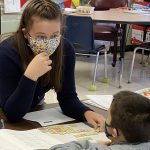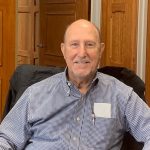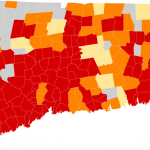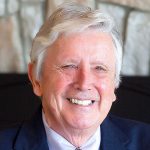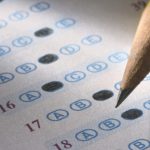“As a former school board member – and as a researcher who studies educational leadership and policy – I find it worrisome when polarizing issues generate so much attention from candidates,” says Casey Cobb, Neag Professor of Educational Policy at the Neag School of Education. “The reason I worry is that I know from firsthand experience that being an effective school board member is never just about taking a stance on a few hot-button topics. Rather, it’s about much broader issues, such as meeting the educational needs of all students in the school district.”
Davidesco, an assistant professor in the Neag School of Education, is the recipient of an NSF Early Career Development (CAREER) Program award. This prestigious grant supports the research of early-career faculty who demonstrate remarkable potential to become leaders in their field. Additionally, the award seeks to support projects that actively engage students and the community.
Students who are both academically talented and also on the autism spectrum can enjoy greater success in college based on the correct high school experience. That’s the finding of research performed by a UConn team in the Neag School of Education and published in a recent issue of the Journal of Autism and Developmental Disorders. The study used the largest sample of academically advanced students, who also have autism, in any research study ever conducted. The authors were interested in researching a group where the focus is typically on disabilities, not talent and abilities.
“School assignments that a student is expected to do outside of the regular school day—that’s homework,” says Sandra Chafouleas, a UConn Board of Trustees Distinguished Professor at the Neag School of Education. “The general guideline is 10 minutes of nightly homework per grade level beginning after kindergarten. This amounts to just a few minutes for younger elementary students to up to 2 hours for high school students.”
William “Bill” Servedio, associate professor emeritus and a former dean of the Neag School, passed away on Monday, Dec. 27, 2021.
People tend to look at maps as information that should be taken as fact without the need for analysis, but that’s a mistake. When the average person consumes information through sources like television, radio, a website, or a newspaper, they might do it with a critical eye. What is the viewpoint of the news outlet? Has it been trustworthy in the past? Is there another source for this information to get a second opinion? A map is different. People tend to look at maps as absolute information that should be taken as fact without analysis. But that’s a mistake, according to a pair of UConn professors from the Neag School of Education in a recent article published in Social Studies Research and Practice.
Two new staff members recently joined the Neag School Dean’s Office, and the Department of Educational Psychology also welcomed new staff and faculty.
Mark R. Shibles of Wilton, Maine, a former dean and professor emeritus of the Neag School of Education, was a highly respected scholar and leader in educational leadership and policy. With his passing on Aug. 24, 2021, at 83, the Neag School honors Shibles’ impact and his legacy.
A new book co-authored by Neag Professor of Educational Policy Casey Cobb is the latest installment in a series that examines controversial claims surrounding major political and cultural issues in America.
In a newly published journal article, Neag School Professor and adult learning expert Robin Grenier examines, with colleagues including Neag School alumna Kristi Kaeppel ’20 Ph.D., the use of book clubs and literature as a tool for enhancing the professional learning of employees across various organizations — from the military to nonprofits to health care. Voluntary, fiction-based book clubs, the researchers say, offer employees a nonformal setting for learning while critically raising consciousness within an organization.



